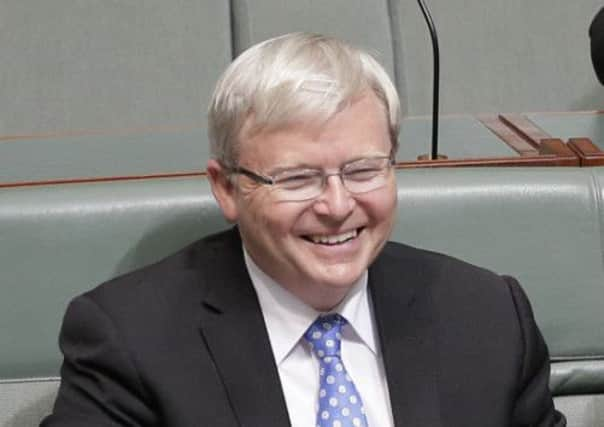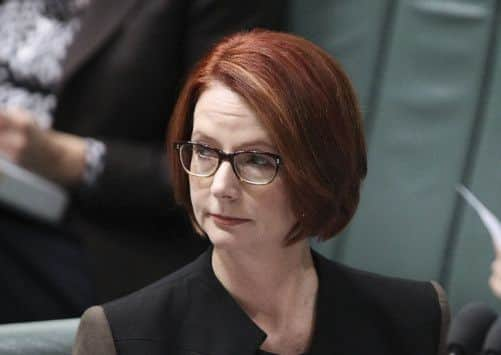Kevin Rudd replaces Julia Gillard as Australian PM


The reinstatement of Mr Rudd yesterday as a last-ditch effort to shore up support by the governing Labour Party, which opinion polls show faces catastrophic defeat at a poll scheduled for 14 September.
The former diplomat, who speaks Mandarin, draws strong popular support, but has divided and destabilised his party after launching two failed leadership bids in the past 18 months.
Advertisement
Hide AdAdvertisement
Hide AdAnalysts said the leadership change could backfire. Australian National University political scientist John Wanna, a Labour supporter, said Mr Rudd has been “rewarded for three years of sabotaging the government”. He added that “Labour’s still going for a train crash” at the election. Half the cabinet can’t stand him.”


The return of Mr Rudd could now see Australia go to an election in August in an effort to cash in on his greater popularity with voters and an expected honeymoon period with the electorate.
The leadership change followed a series of opinion polls showing Ms Gillard’s minority government could lose up to 35 seats, giving the conservative opposition a massive majority in the 150-member parliament.
Mr Rudd, who was prime minister from late 2007 until June 2010 when he lost a surprise party leadership ballot to Ms Gillard, gave no indication of whether he would call an early election, or test his support on the floor of Australia’s hung parliament.
He also made no comment on when he would visit Quentin Bryce, the governor-general who acts as Australia’s head of state, who will appoint him prime minister if she is confident that Mr Rudd can control a majority in parliament.
“In 2007, the Australian people elected me to be their prime minister. This is a task I resume today with humility, with honour and with an important sense of energy and purpose,” he told reporters, adding that he wanted to rebuild trust with voters.
“In recent years, politics has failed the Australian people. There has just been too much negativity all round.”
Ms Gillard, Australia’s first female prime minister, stuck to her promise to quit parliament if she lost the ballot.
Advertisement
Hide AdAdvertisement
Hide Ad“I am very proud of what this government has achieved, which will endure for the long term,” a gracious but business-like Ms Gillard told reporters, congratulating Mr Rudd on his victory.
Ms Gillard, who made international headlines for calling opposition leader Tony Abbott, a misogynist, also hit back at critics who accused her of playing the gender card. Because of her tenure, she said, “it will be easier for the next woman and the woman after that and the woman after that. And I’m proud of that.”
Senior ministers including treasurer and deputy prime minister Wayne Swan, education minister Peter Garrett, trade minister Craig Emerson and climate minister Greg Combet announced their ministerial resignations in the wake of the coup. Transport minister Anthony Albanese was named Mr Rudd’s deputy.
Ms Gillard struggled to win public support despite economic growth, low unemployment and low interest rates at a time when other developed countries are struggling to keep out of recession.
Ms Gillard has also pushed social reforms that pour money into schools and which help disabled people gain
access to much-needed free care, but the changes have done little to shift her dwindling support in polls.
Voters have also remained angry that her government, which holds a one-seat majority with support from the Greens and a clutch of independents, introduced a controversial carbon tax in a U-turn from her 2010 election promise not to do so.
Two independent MPs and the Greens said they would continue to support a Rudd government in the hung parliament.
Advertisement
Hide AdAdvertisement
Hide AdLike Ms Gillard, Mr Rudd is a strong supporter of both Australia’s military alliance with the United States and of growing ties with top trading partner China.
Mr Abbott, the favourite to win the elections, has promised to scrap the carbon tax and a 30 per cent tax on iron ore and coal mine profits if he wins power. He has also promised tighter control of public spending.